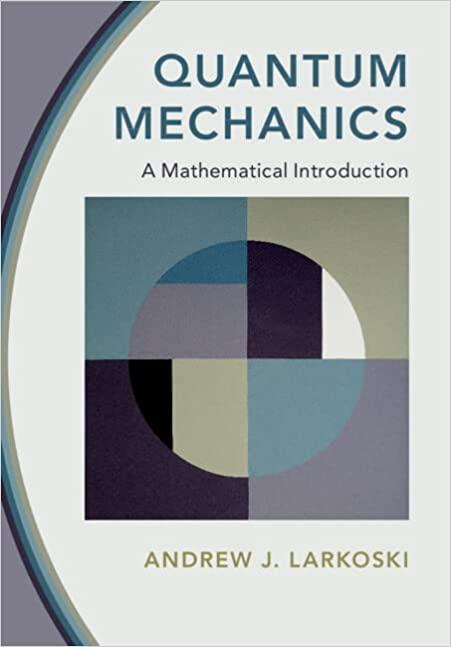We had stated in this chapter that the general Rnyi entropies do not satisfy subadditivity; only the
Question:
We had stated in this chapter that the general Rényi entropies do not satisfy subadditivity; only the von Neumann entropy does. In Example 12.2
, we constructed an explicit counterexample for the Rényi entropy with the parameter \(\alpha \rightarrow \infty\). In this exercise, we will study subadditivity of Rényi entropy more generally. Recall that the statement of subadditivity for a general entropy measure \(S\)
\[\begin{equation*}S^{A B} \leq S^{A}+S^{B} \tag{12.148}\end{equation*}\]
where \(A B\) is the combined system and \(A\) and \(B\) are its mutually exclusive subsystems.
(a) Consider two independent systems \(A\) and \(B\) and the system of their union \(A B\). Does such a configuration of systems satisfy subadditivity for the Rényi entropy? It might help to consider particular values of Rényi parameter \(\alpha\), like \(\alpha=0\) or \(\alpha \rightarrow \infty\).
(b) The density matrix constructed as a counterexample to subadditivity to the \(\alpha \rightarrow \infty\) Rényi entropy in Example 12.2
is actually more powerful than presented there. Determine the range of the Rényi entropy parameter \(\alpha\) such that that density matrix is a counterexample to subadditivity. Another way to ask this question is to determine the value of Rényi parameter \(\alpha\) such
that the density matrix of Eq. (12.37) renders the property of subadditivity an equality.
(c) Can you modify the counterexample density matrix of Eq. (12.37) such that subadditivity is violated for all Rényi entropies with \(\alpha>1\) ?
(d) What about for \(0<\alpha<1\) ? Can you construct a counterexample density matrix that demonstrates that all Rényi entropies, except at the special value of \(\alpha=1\), violate subadditivity?
Step by Step Answer:

Quantum Mechanics A Mathematical Introduction
ISBN: 9781009100502
1st Edition
Authors: Andrew J. Larkoski





